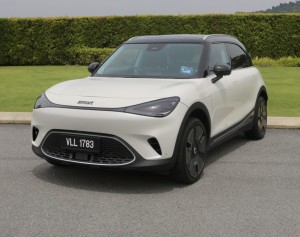Hydrogen cars are turning out to be a flop. Why?
By ETX DAILY UP | 25 August 2024
PARIS: Sales of hydrogen-powered cars are sluggish all over the world, mainly due to an impoverished product selection and scant charging infrastructure.
Only 5,621 hydrogen-powered vehicles were sold worldwide in the first half of 2024, according to SNE Research, a drop of over 34% compared to the same period last year.
Looking at a breakdown, China and South Korea sold the most, with sales figures of 2,501 and 1,742 units respectively. In both cases, however, these figures are significantly lower than sales in these countries in 2023.
The most spectacular drop was in the USA, with just 322 sales in 6 months, compared with 1,825 a year earlier. Europe and Japan are the only two markets to post an increase in hydrogen vehicle sales, but these figures are so anecdotal (594 and 440 cars sold respectively) that it's difficult to speak of genuine success.
Ten years ago, the Toyota Mirai caused a sensation by becoming the first mass-market car to be equipped with a hydrogen fuel cell.
The promise of the technology was to enable driving long distances without producing even the slightest CO2 emissions, since the vehicle would only give off water vapor.
However, there have been few competitors following this pioneer, with only South Korea's Hyundai, China's Haima and (soon) Honda adding hydrogen-powered models to their catalogs.
Back in 2022, two French start-ups caused a sensation at the Paris Motor Show, presenting two highly attractive concepts.
With the Machina, Hopium touted unprecedented performance for a hydrogen-powered vehicle, with power equivalent to over 500hp and a range of up to 1,000km in the top-of-the-range version.
Unfortunately, this car never saw the light of day.
Meanwhile, NamX presented an original SUV with a charging system that used removable hydrogen capsules, in addition to the original hydrogen tank.
Since then, the start-up has revised its design and replaced the fuel cell with a hydrogen-fuelled V8 engine. The redesigned SUV could go on sale in 2027.
In addition to an almost non-existent array of models, in many areas there is no real charging network to speak of. While some areas have projects to develop more stations in the short term, it remains an obstacle to uptake.
While this type of clean energy is having a hard time catching on on the road (including in the motorcycle and bicycle sectors), it's a different story on the seas (with yachts, liners and container ships) and in the air (with airliners and even flying taxicabs), where projects for hydrogen-powered vehicles are multiplying quickly.
Tags
Autos News
Reviews

7.9
Xpeng G6 580 Pro: Fresh and fluidic

Guangzhou adventures: Zontes 368 scooter and 703 Adventure m...

Zontes motorcycle factory in Jiangmen: Running on a fast tra...

7.6
Maserati GranTurismo (Mk2) Modena: Sharp and smooth operator

6.8
Triumph Tiger 900 GT Pro: Multi-talented adventurer

Hyundai Ioniq 5 N: Born rascal

6.6
Husqvarna Svartpilen 401: Inspiring retro design

8.8
smart #1 (Premium): Agile, engaging, roomy, premium motoring
Videos

StarCarSifu Editors' Choice Awards 2024: Top winners

The Snowball – Lamborghini’s Heartwarming Christmas Story of...

EVOGO battery swapping solution showcased at IAA Mobility 20...
